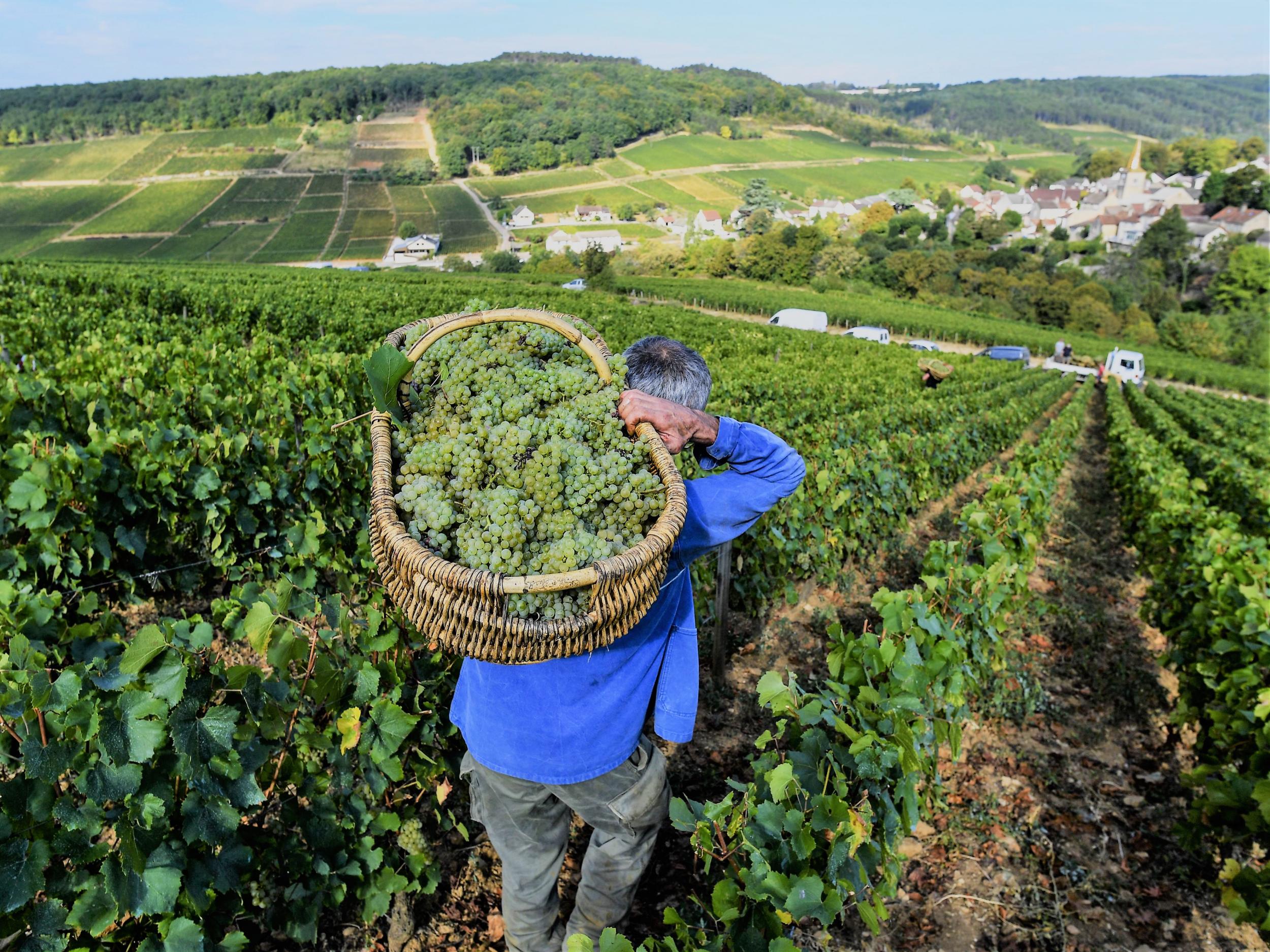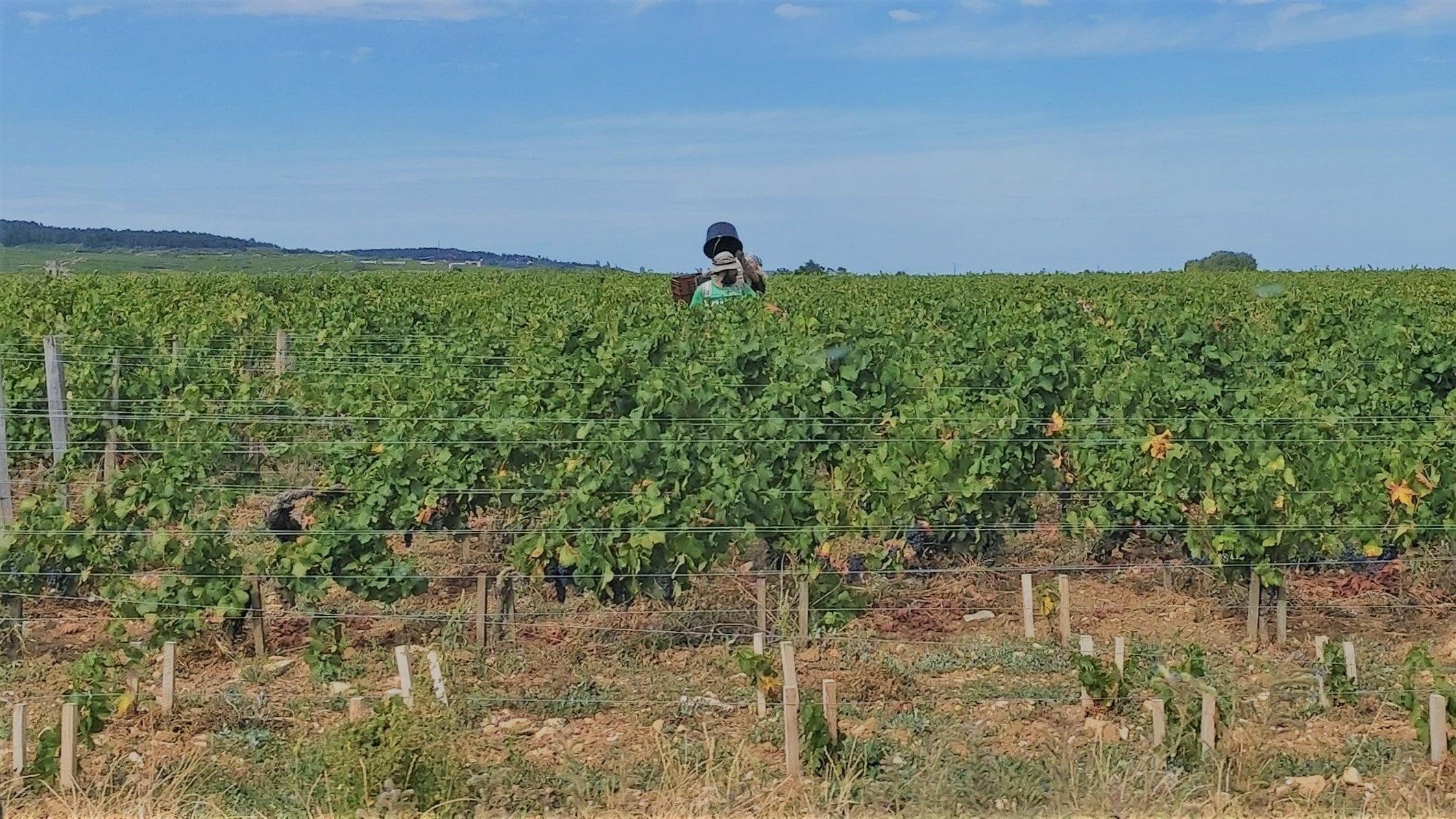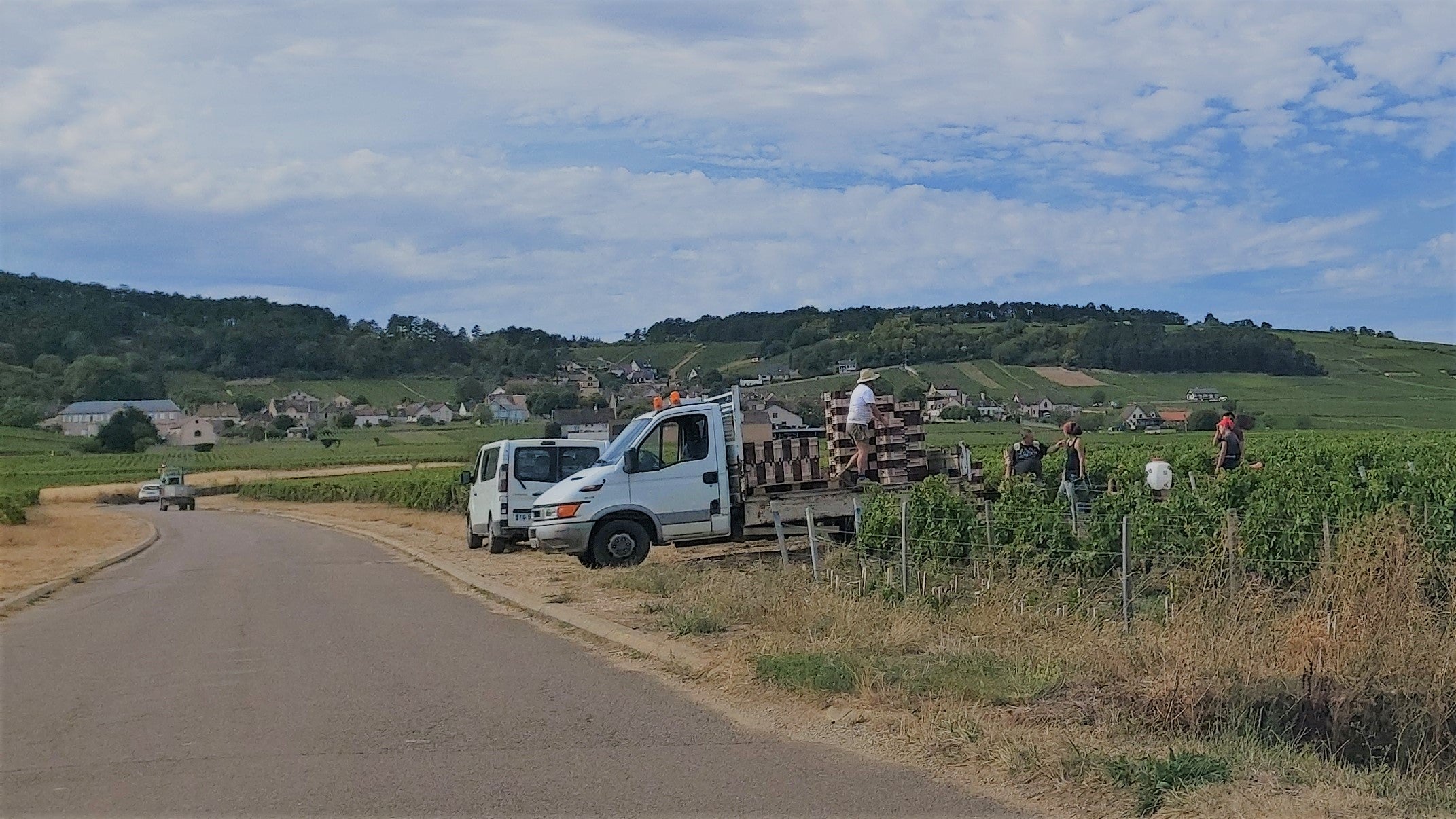French winemakers see earliest harvest since 1556, as climate change ‘alters taste of wine’
Accelerated warming trend over the last 30 years is also making wine stronger, as Anthony Cuthbertson reports from Burgundy, France


A succession of heatwaves and extreme weather conditions have forced French winemakers to undertake the earliest grape harvest in nearly 500 years.
Vineyards in Burgundy scrambled to organise grape picking after abnormally hot and dry conditions brought the fruit to maturity more than a month earlier than average years, according to local records.
In what was the joint earliest harvest since records began in 1371, 2020’s crop equalled the 16 August harvest date from 1556. It follows a trend in recent years of increasingly early harvests, which are drastically altering the taste – and even the strength – of the wine produced.
For Jerome Noel-Bouton, a retired vigneron whose family still runs the Domaine De La Folie vineyard in the Rully region, this year is just the latest in a series of unprecedented harvests.
“When I was younger, some of our harvests would begin in November. Now if we start in September, we may be too late,” he told The Independent.
This year, grape picking at his vineyard began on 24 August and he expects it to be an excellent vintage. Previous heatwaves in 1976 and 2003 were among the best years for wine in living memory, though Mr Noel-Bouton noted that the extreme weather made his produce taste almost unrecognisable compared to other years, as though it came from another region.
“The wine is stronger and it has a different taste,” he said. “These last few years have been an exceptional period. The heat and the dryness might be unpleasant for us living here but it’s great for the wine.”

Climate scientists say such early harvests are evidence of a warming trend over the last 30 years that has brought increasingly hotter and drier weather to the region.
“Between 1354 and 1719, a hot spell in spring or summer occurred every 17 years. Subsequently such events became increasingly rare, occurring every 67 years,” said Christian Pfister, a professor at the Oeschger Centre for Climate Change Research at the University of Bern in Switzerland.
“In the 20th century, there were just two years of this kind up until 1987, namely 1947 and 1976. After the transition to rapid warming, such extreme events occurred every five years. They have become normal.”
Professor Pfister led a study in 2019 correlating the accelerated global warming trend since the mid-1980s with early harvests. His research is based on a data set compiled by University of Burgundy academic Thomas Labbé, who meticulously reconstructed dates of grape harvests by trawling through newspaper archives, local council records, and wage payments dating back to 1371. The grape harvest dates represent the oldest and longest continuous phenological data (relating to the timing of biological events in plants and animals) in Europe, and are an invaluable resource for studying climate change.
The data revealed that grape picking has begun 13 days earlier on average since 1988. Professor Pfister told The Independent that the warming trend will lead to weather in the region that is incomprehensible to people alive today.
“The new extremes that we will have to face in the coming decades are beyond experience and imagination,” he warned.
“We have to refer to the two most extreme years known in the last millennium – 1473 and 1540 – to get some idea of their severity.”
In 1540, some areas of Europe saw no rainfall all winter, causing the Rhine and the Seine to both run dry. Water became so scarce that in some regions wine became cheaper than water, he said.
Wine harvests in Burgundy began on 20 August that year, though even that early many of the grapes on the vines had reportedly already withered to raisins.

In early August, the French Ministry of Agriculture’s statistics department noted that one of the warmest spring seasons in 100 years had accelerated the development of the grapes.
Its report stated that “many vines have flourished in these favourable climate conditions” but warned that some regions were already suffering from high temperatures and drought on the surface of the soil. “Climate events have caused health problems that could affect the vines,” it warned.
Such issues are yet to reach Burgundy on any significant scale, though if accelerated warming continues then they may be just a few decades away.
A study from 2007 used climate projection models to predict that average temperatures in the region will rise by up to 2C by 2050, though recent years suggest that even these estimates may be conservative.
It warned: “Many of the wine regions may be at or near their optimum growing season temperature... and further increases [in temperature] will make parts of southern Europe too hot to produce high quality wines.”
Professor Gregor Jones, the lead author of the paper, continues to study climate variability and its influence on grapevine growth, wine production and quality. He told The Independent that Burgundy wine growers may be forced into shifting to entirely different grape varieties as a result of increasing temperatures.
"If a given cultivar is being grown in too warm of a region, or the vintage is too warm, then lower acid retention, overripe flavours and unbalanced wines will result," he said.
"Burgundy is currently in the ‘goldilocks’ zone for growing and producing exceptional Pinot Noir wines, but if the climate warms outside what we know it can perform in, then wine styles will change and the variety may not be as suitable to the region in the future."
Join our commenting forum
Join thought-provoking conversations, follow other Independent readers and see their replies
Comments